Banking Terms for IBPS PO Interview
Every IBPS PO aspirant must be familiar with the key banking terminologies used in the industry. Knowing these terms will help you excel in your upcoming interview. In this blog, we’ve compiled a list of 30 essential banking terms for the IBPS PO interview. These terms are crucial for your interview preparation and will give you an edge during the selection process. Let’s dive into the important banking terms you need to understand.
Important Banking Terms for IBPS PO Interview 2024
Here are some essential banking terms that every IBPS PO candidate should know:
Repo Rate
The repo rate is the interest rate at which the Reserve Bank of India (RBI) lends money to commercial banks. This rate is crucial for controlling inflation and regulating the money supply.
Cash Reserve Ratio (CRR)
The Cash Reserve Ratio refers to the percentage of a bank’s total deposits that it must keep as cash with the RBI. It is used as a tool for monetary policy control.
Statutory Liquidity Ratio (SLR)
The Statutory Liquidity Ratio is the ratio of liquid assets (such as cash, gold, and government securities) to the net demand and time liabilities (NDTL) of commercial banks.
Bank Rate
The bank rate is the interest rate at which the RBI lends funds to commercial banks. It is often used to control inflation and manage the economy.
Base Rate
The base rate is the minimum interest rate that commercial banks can charge for lending. The RBI determines the base rate, and banks cannot lend below this rate.
No-frills Account
A no-frills account is a basic savings account that typically doesn’t require a minimum balance. It offers essential banking services like net banking and online fund transfers.
Soft Loan
A soft loan is a loan provided with favorable terms, such as lower interest rates and extended repayment periods, compared to regular loans.
Reverse Repo Rate
The reverse repo rate is the rate at which the RBI borrows money from commercial banks. It is used to manage inflation and control liquidity in the banking system.
Securitization
Securitization is the process of pooling various financial assets, such as loans, and turning them into a security that can be sold to investors.
Non-Performing Asset (NPA)
An NPA is a loan or advance on which the borrower has not made any interest or principal payments for more than 90 days. NPAs are a key measure of a bank’s financial health.
Payments Bank
A payments bank is a type of bank that cannot lend money or issue credit cards. However, it can accept deposits up to ₹1 lakh.
Monetary Policy
Monetary policy refers to the management of money supply and interest rates by the RBI to control inflation and stabilize the economy.
Capital Adequacy Ratio
The capital adequacy ratio is the ratio of a bank’s capital to its risk-weighted assets. It ensures that the bank can absorb a reasonable amount of loss and meets regulatory requirements.
Bank Ombudsman
A bank ombudsman is an official who handles complaints from customers when other methods of resolution have failed.
Call Money, Notice Money, and Term Money
- Call Money refers to short-term borrowing or lending, typically for one day.
- Notice Money is borrowed or lent for a period between 2 to 14 days.
- Term Money refers to borrowing or lending funds for a period longer than 14 days.
Interbank Interest Rates
- Mumbai Interbank Bid Rate is the interest rate at which one bank borrows funds from another in the Indian interbank market.
- London Interbank Offer Rate (LIBOR) is a global benchmark for short-term borrowing in the interbank market.
Plastic Money
Plastic money refers to debit or credit cards used as alternatives to cash. It allows for easy transactions without the need for physical currency.
Special Drawing Rights (SDR)
Special Drawing Rights are international reserve assets created by the International Monetary Fund (IMF) to supplement member countries’ official reserves.
RTGS (Real Time Gross Settlement)
RTGS is a fund transfer system that enables real-time, large-value transactions between banks.
Balloon Mortgage
A balloon mortgage is a loan with an initial period of lower payments, after which the full balance becomes due in a lump sum.
Marginal Standing Facility (MSF)
The MSF is a window for banks to borrow funds from the RBI in case of an emergency liquidity shortage.
Letter of Credit
A letter of credit is a guarantee from a bank to a seller that the buyer will make payments for goods or services as agreed.
Nostro and Vostro Accounts
- Nostro account refers to an account that a bank holds in foreign currency in another bank.
- Vostro account refers to an account a correspondent bank holds on behalf of another bank.
Returned Item Fee
The returned item fee is charged when a cheque bounces due to insufficient funds or other reasons.
On-lending
On-lending refers to the practice of banks lending money to intermediaries, who in turn lend the funds to eligible borrowers in the priority sector.
Currency Deposit Ratio
The currency deposit ratio shows the proportion of currency held by people compared to the aggregate deposits in the banking system.
Conclusion
These are some of the most important banking terms for the IBPS PO interview. We hope this list helps you prepare effectively. Reviewing these terms will not only help you during the interview but also give you an understanding of key banking concepts. Good luck with your IBPS PO preparation, and Oliveboard wishes you all the success in your upcoming exams!
- IBPS PO Interview Questions 2025, Expected Questions to Prepare
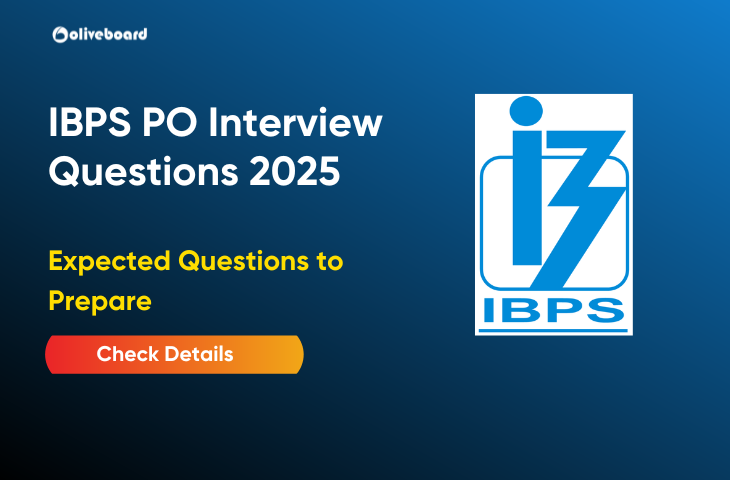
- IBPS PO Interview Date 2025 Out, Interview Starts 11th Feb 2025
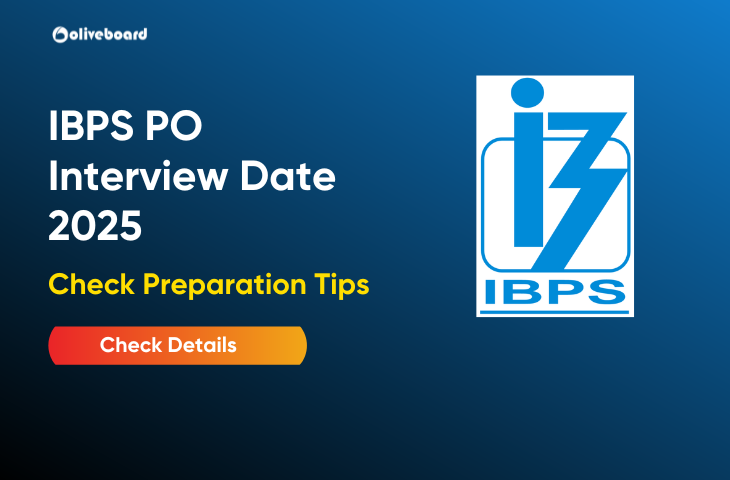
- IBPS PO Interview Call Letter 2025 Out, Download Link
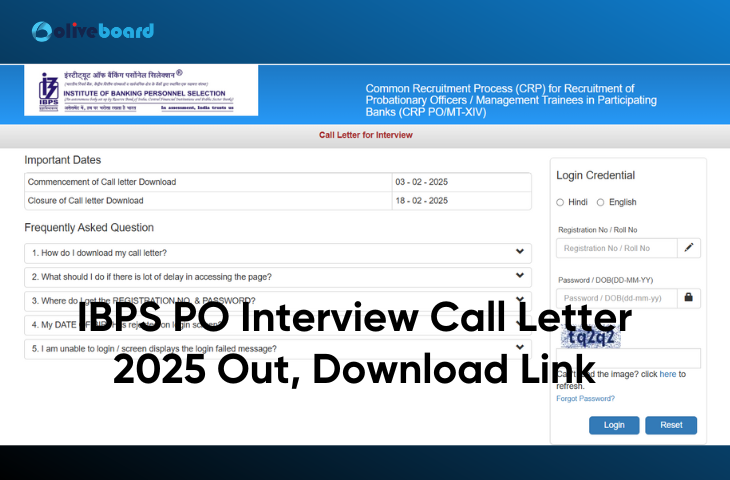
- How to Explain a Gap Year in the IBPS PO Interview?
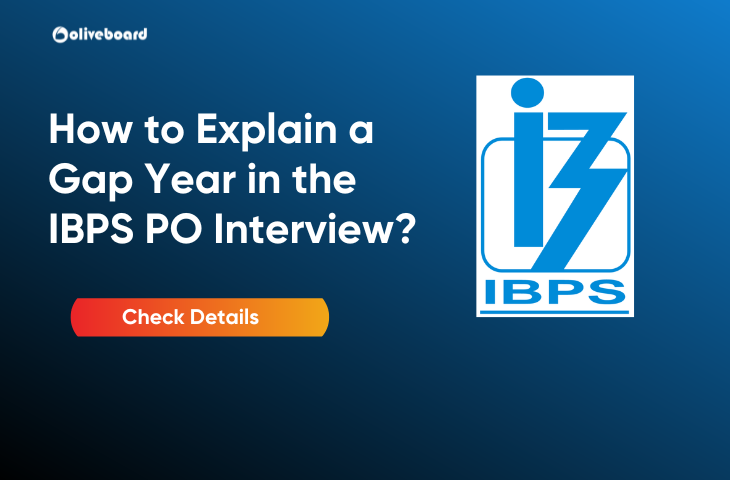
- How to Prepare for IBPS PO Interview 2025? IBPS PO Interview Strategy
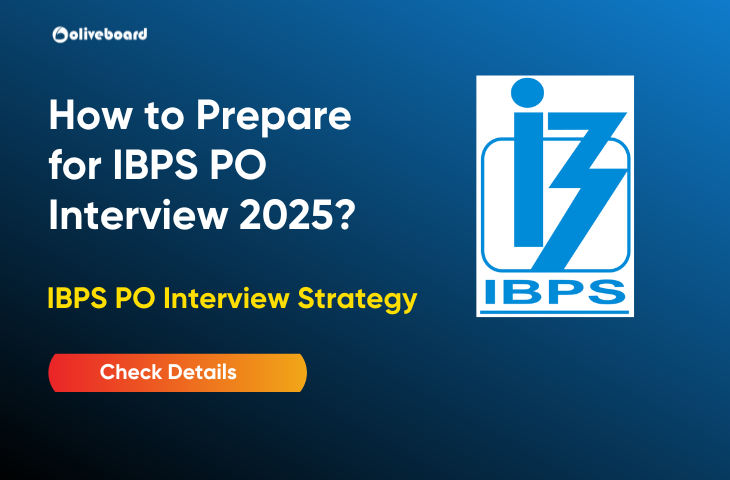
- IBPS PO Interview Marks, Check the Marking Scheme
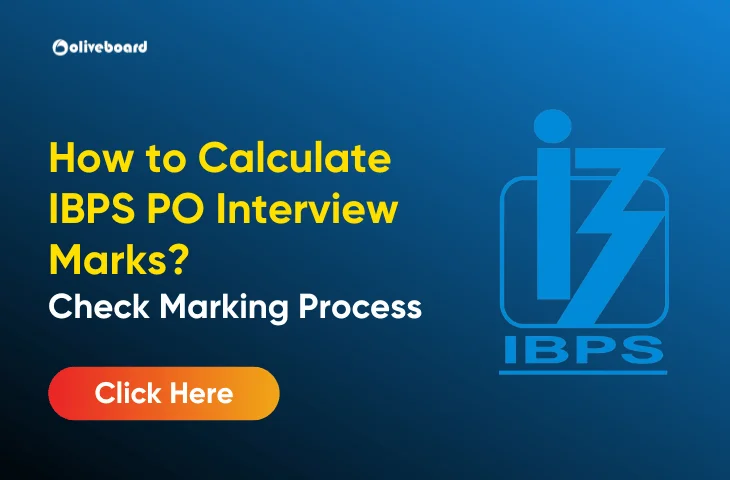

Hello, I’m Aditi, the creative mind behind the words at Oliveboard. As a content writer specializing in state-level exams, my mission is to unravel the complexities of exam information, ensuring aspiring candidates find clarity and confidence. Having walked the path of an aspirant myself, I bring a unique perspective to my work, crafting accessible content on Exam Notifications, Admit Cards, and Results.
At Oliveboard, I play a crucial role in empowering candidates throughout their exam journey. My dedication lies in making the seemingly daunting process not only understandable but also rewarding. Join me as I break down barriers in exam preparation, providing timely insights and valuable resources. Let’s navigate the path to success together, one well-informed step at a time.

